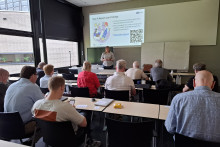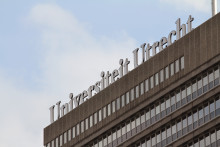At the event, taking place in the DesignLab at the UT, participants discussed the meaning of social entrepreneurship, business focused on improving people´s lives through low-cost innovation. Several UT researchers presented their projects that address social problems of today´s world. One of such projects is PC3 (Product Co-creation Centers) , which was initiated by Juan Jaurequi Becker, Laura Franco Garcia and Aard Groen from the University of Twente and which now includes several other UT researchers.
Supporting creative people
PC3 project is focused on developing a program through which potential entrepreneurs from base of the pyramid get help from specialists in order to co-create their products and start a sustainable business. ´What is the real difference between the rich and the poor?´ asked Juan Jaurequi Becker, who held a presentation about PC3 at the Symposium. ´It is not necessarily money. The main difference lies in the access to services, including clean water, electricity or healthcare,´ he explained. ´Poor people are not connected to the ´system´. PC3 initiative is trying to change that by identifying and supporting creative people in developing countries.´
Real work in Colombia
Indeed, PC3 is not only a theoretical idea, but it has already been applied in practice. Monica Ramos, PhD candidate from the University of Twente, has implemented PC3 concept in her work with a group of entrepreneurs in an isolated region of Colombia. ´The project is focused on an area that has experienced a lot of illegal activity, such as growing of coca. The county has had a lot of money flow, but very poor access to services, which results in a low quality of life for the locals, ´ Ramos explained during her presentation.
´We work with nine people, all of them community leaders who can inspire others. We are currently training them to be able to coach people in their communities to become sustainable, social entrepreneurs,´ said Ramos. If successful, the project can make a big impact on lives of people, who lack things most of us take for granted, such as access to drinking water, proper roads or easy communication with the outside world.







